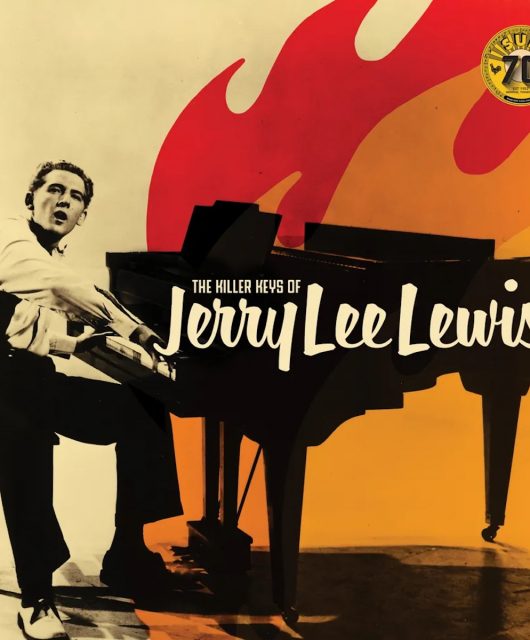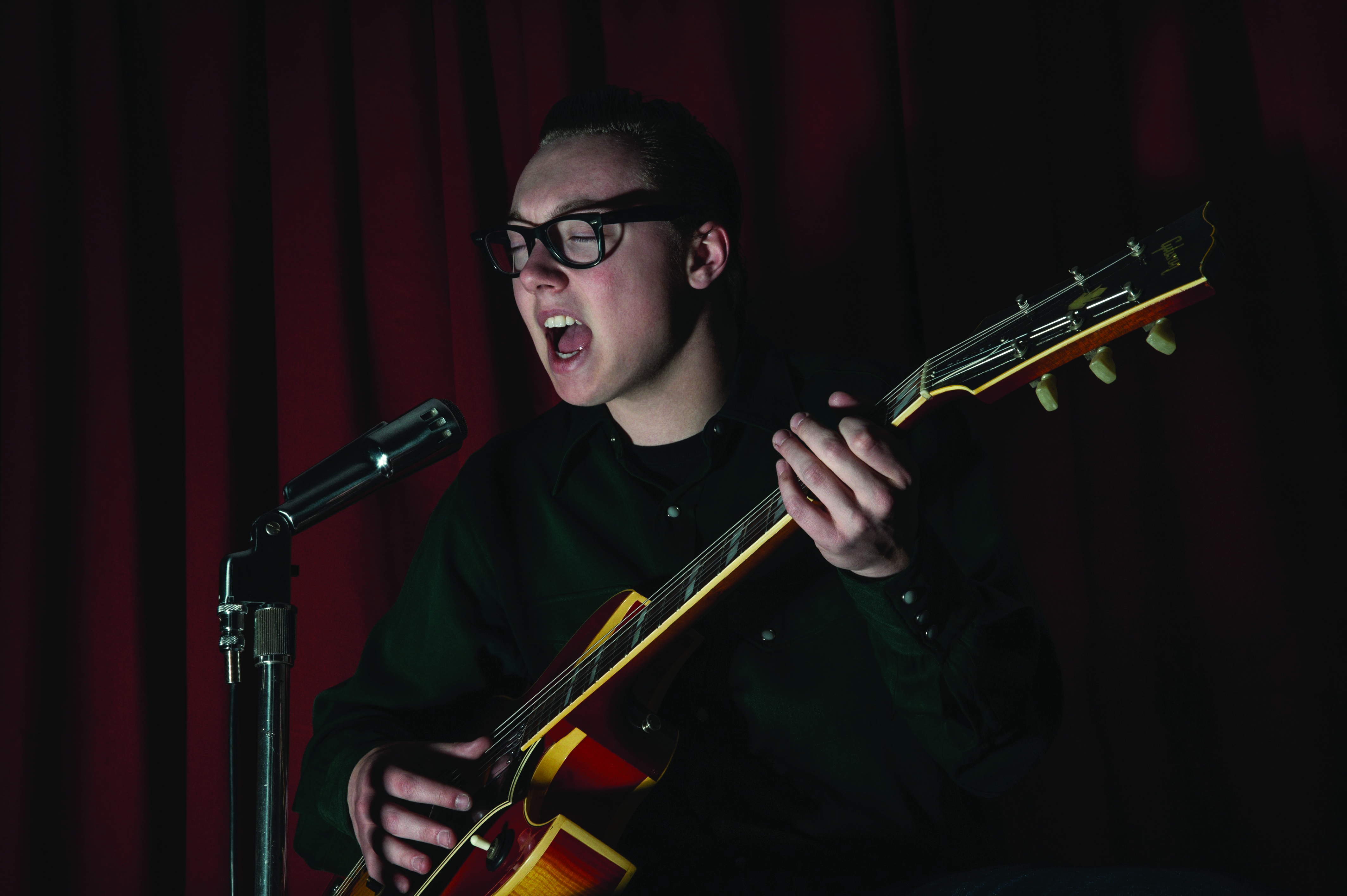We revisit the early days of the singer and band who are forever remembered for their all-time British rock’n’roll classic, Shakin’ All Over. By Jack Watkins
In the story of British rock, Johnny Kidd & The Pirates often seem to disappear into a hole between early pacemakers like Tommy Steele, Cliff Richard, Marty Wilde and the arrival of The Beatles. Equally, if you Google Shakin’ All Over, which was a No.1 smash in 1960 and gave Kidd by far his biggest hit, The Who’s later version from their Live At Leeds album is as likely to be the first link that comes up.
Adding to the injustice, the original has often been referred to without due credit given to the Pirates’ personnel at the time of the recording. The most high-profile guitarist who played in the Pirates was Mick Green. Great as he was, however, he was a later member of the band between 1962 and 1964. For lovers of a vintage rock sound, the classic line-up comprises guitarist Alan Caddy, bass player Brian Gregg and drummer Clem Cattini, from the 1960-61 period. These were Kidd’s first truly decibel-mangling power trio, noted for playing very loud during their gigs to compensate for the lack of a rhythm guitarist, although recording technology of the time didn’t always convey this actuality on disc.
Near the end of 1961 the trio would leave Kidd, first touring with Tommy Steele’s brother Colin Hicks, and then operating as Joe Meek’s house band, which went on to enjoy commercial success from 1962-63 as the instrumental group The Tornados. But before all that they had played a major part in the creation of the Johnny Kidd & The Pirates sound, and in their distinctive stage image, appearing in pirate regalia. With Kidd wearing an eyepatch and swirling his cutlass, and the band in similarly buccaneering attire – before Screaming Lord Sutch, David Bowie and Adam Ant – they were pioneering theatrical British rock’n’roll.
Despite his in-between-the-years status, Kidd was actually senior to most of the early British rockers. Born in Willesden, north-west London, in 1935, he cut his musical teeth on skiffle. Freddie Heath, as he was originally known, made a couple of demos with one of his early groups, The Five Nutters, in 1957 (included on a four-track 10″ vinyl release, A Fabulous Freddie Heath Double Bill, put out by the jazz label Moochin’ About in 2017). The two skiffle sides were a version of Shake Rattle & Roll and the Heath original, She’s My Blood Red Beauty, inspired by the singer’s first wife Ada. Heath’s group played at the top London skiffle venue of the time, Soho’s 2i’s Coffee Bar.
That Soho skiffle connection would resurface a few years later in the creation of Shakin’ All Over, its composition worked up by Kidd, Caddy and Gregg in the basement of the Freight Train Coffee Bar, owned and run by Chas McDevitt and named after the great skiffler’s biggest hit (see boxout). Even in his Freddie Heath days, Kidd fancied himself as a songwriter and his first single comprised two self-penned sides, Please Don’t Touch and Growl, released on EMI’s His Master’s Voice label in 1959. This marked the first appearance on a disc of the moniker, Johnny Kidd & The Pirates, apparently arrived at when, on concluding the recording session, an EMI staffer handed the band a note which read simply “Johnny Kidd & the Pirates” and bluntly informed them, “From now on, that’s your recording name.”
Three things are notable about Please Don’t Touch, aside from the fact that it managed a highly respectable No.25 chart placing, and would later be recorded by Matchbox for their 1976 album Riders In The Sky, and Motörhead on their big-selling St Valentine’s Day Massacre EP in 1980 with Girlschool. The first is that Kidd doesn’t disguise his London accent, at a time when most British rockers affected an American delivery. Tommy Steele never hid his Britishness, but often sang in an exaggeratedly Cockney way, whereas the way Kidd delivers lines like, “Well,
I don’t know why she dug her claws in me/ I wanna be a bachelor and fancy free” sound totally natural. Soon, The Beatles would make the Scouse accent cool but on Please Don’t Touch Kidd was already demonstrating that sounding British was no disqualification for singing convincing rock’n’roll.
The second thing is the rueful tone of Johnny’s voice. When most rock’n’roll songs talked about the opposite sex it was in admiration or fun but here was Johnny “shakin’ like a leaf” and begging his girl not to touch him. The common theme of all the great Kidd originals of the 1960 to 1961 era was this slightly gloomy tone, on Feelin’, Shakin’ All Over, Restless and Please Don’t Bring Me Down, supported by the strangely isolating echo effects, and eerie minor chords. The third point is the jangly lead guitar playing of Alan Caddy, recognisably the man who would devise the unforgettable lead guitar riffs of Shakin’ All Over, and later the shimmering solo on
The Tornados’ Telstar.
Caddy’s guitar was also distinctive on another fine Kidd rocker, Feelin’, on which poor old Johnny complained that his girlfriend was turning his knees to jelly. Incredibly, that song was relegated to the B-side of If You Were The Only Girl In The World. Bert Weedon played guitar on this one, well sung by Kidd to be fair, albeit with backing flown in direct from Squaresville. It made no impression on record buyers.
Not long after, however, the final members of the classic early Pirates line-up arrived in the shape of Gregg and Cattini, both having just quit working for Larry Parnes, as members of Billy Fury’s Blue Flames. At first, they were wary of Caddy, who turned up at their audition in Denmark Street dressed more like an estate agent than a rock guitarist. In his early live performances, shyness had made Alan play with his back to the audience. Nevertheless, as he developed, this classically trained musician made an impression, and his habit of windmilling his arms above his guitar is said to have influenced Pete Townshend.
Caddy’s ability to combine playing lead guitar with chunky rhythm chords – necessitated by the need to fill out the band’s sound when rhythm guitarist Frank Routledge opted out of life on the road – as well as Cattini’s powerhouse drumming and the electric bass of Gregg who used his thumb rather than a plectrum to give his playing a deeper and more forceful quality than was common at the time, made the Pirates unique.
The first single the new line-up played on together was a cover of early Motown star Marv Johnson’s You Got What It Takes, backed by Kidd’s own Longin’ Lips, which fans might find they prefer. Only a moderate hit, HMV’s idea of the next single was the trad-jazz favourite Yes Sir, That’s My Baby, to the band’s horror. At least they were allowed to come up with the B-side. That happened to be Shakin’ All Over, which luckily the company recognised was the superior side and which, with the help of guest guitarist Joe Moretti, made history.
Kidd reckoned the follow-up single, Restless, was an even better song, and it certainly has another great guitar solo, Moretti’s playing seeming to explode out of the middle of the track. They were disappointed when it only got to No.22 in the UK. Please Don’t Bring Me Down, the last of the melancholy, echoey early Kidd rockin’ classics, released in 1961, boasted Big Jim Sullivan playing the lead guitar but it entirely failed to chart.
After the departure of Caddy, Gregg and Cattini, key members of the Pirates would include Green, Johnny Spence on bass and drummer Frank Farley. Kidd would record more R&B-style material, and score one last big hit with I’ll Never Get Over You (UK No.4 in 1963), a solid stab at Merseybeat. A vastly better effort in the style, even though it didn’t chart, was the superb Jealous Girl, which carried something of that sad and rather wistful tone that had helped make those earlier Kidd songs so distinctive. Johnny Kidd’s end was tragic and sudden, killed in a car crash in 1966, but his musical legacy and that unique visual image remain to be treasured.






